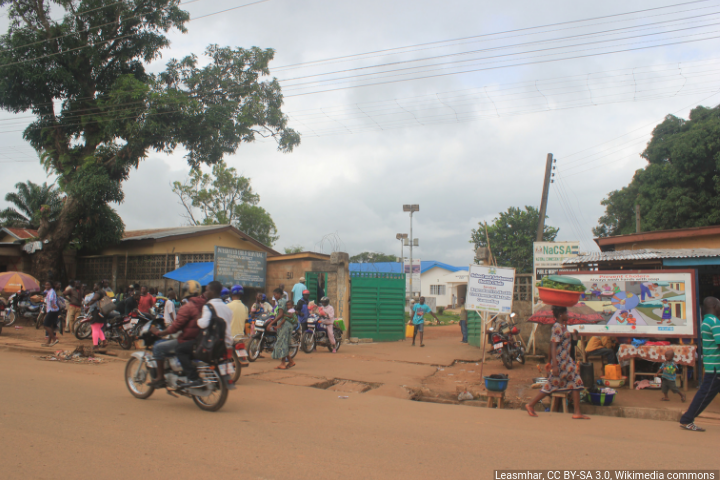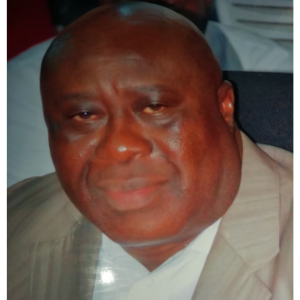Longer-term legacy of the Ebola outbreak on health systems in Sierra Leone
| 6 June, 2019 | Thomas Samba |
|

|

Reports by front line health workers on the impact of the 2014/15 Ebola outbreak on the health systems and service delivery in Sierra Leone, provide the first assessments of the long term impact Ebola has on health systems. Thomas Samba, Deputy Chief Medical Officer, Ministry of Health and Sanitation, Sierra Leone, tells us more about the reports, published in a new collection on the TDR gateway on F1000Research, and how they could be used to help with future outbreaks.
During 2014 and 2015, West Africa experienced the largest, most prolonged and most devastating outbreak of the Ebola virus in history. Most cases were reported in Sierra Leone, Guinea and Liberia with a total of 28,646 people infected and 11,323 deaths. In August 2014, the World Health Organisation declared the outbreak an international public health emergency.
Sierra Leone was the hardest hit, registering almost half of all Ebola cases in the region. Prior to the Ebola outbreak, the country was struggling to recover from over a decade of civil war and already had serious deficiencies in its health system along with considerable health worker shortages.
50,000 patients per physician
The country had one of the highest patient-to-physician ratios in the world,50,000 patients per physician, compared to approximately 400 patients-per-physician in the USA. With 300 health care workers becoming infected during the Ebola outbreak and 221 health worker deaths, the Ebola outbreak took a devastating toll on health worker availability. It also adversely affected access to, and quality of health service delivery.
The extent to which the provision and utilization of health care services was affected by the outbreak was difficult to monitor during the outbreak response as the attention of national and international health care providers was focused on limiting further spread of the Ebola virus and reducing mortality in infected patients.
As the outbreak was coming to an end, we requested the Structured Operational Research and Training Initiative (SORT IT) coordinated by TDR, the Special Programme for Research and Training in Tropical Diseases to support nine operational research studies to assess the immediate effect of the Ebola outbreak on health system performance in Sierra Leone.
Reports from the front-line
This second collection of papers reports on research undertaken by front-line health workers in Sierra Leone on the longer-term impact of the 2014/15 Ebola outbreak on the health system and service delivery. Funded by the SORT IT initiative, the authors compared health service performance before, during and after the Ebola outbreak.
They looked at the staffing situation in public health facilities, paediatric morbidity and mortality, management of malaria and non-communicable diseases and the performance of community health workers. Such assessments conducted over two years after the end of the Ebola outbreak can help gauge how well the health system has recovered and could serve as an important step in building resilience to future challenges.
Acting without delay
Post-publication open peer review, enables articles to be shared within days of submission and provides immediate open access to research results. The model enables “real time” publication and rapid sharing of research findings. In public health emergencies, such as an Ebola outbreak, we advocate for immediate publication so that new findings can be shared and acted upon without delay.
Unfortunately, much evidence from the 20I4/2015 Ebola outbreak was shared “too late” due to cumbersome editorial and/or peer-review processes. Put simply, if we want impact in such situations and we want it quickly this is surely the best publication model to use.

|



User comments must be in English, comprehensible and relevant to the post under discussion. We reserve the right to remove any comments that we consider to be inappropriate, offensive or otherwise in breach of the User Comment Terms and Conditions. Commenters must not use a comment for personal attacks.
Click here to post comment and indicate that you accept the Commenting Terms and Conditions.